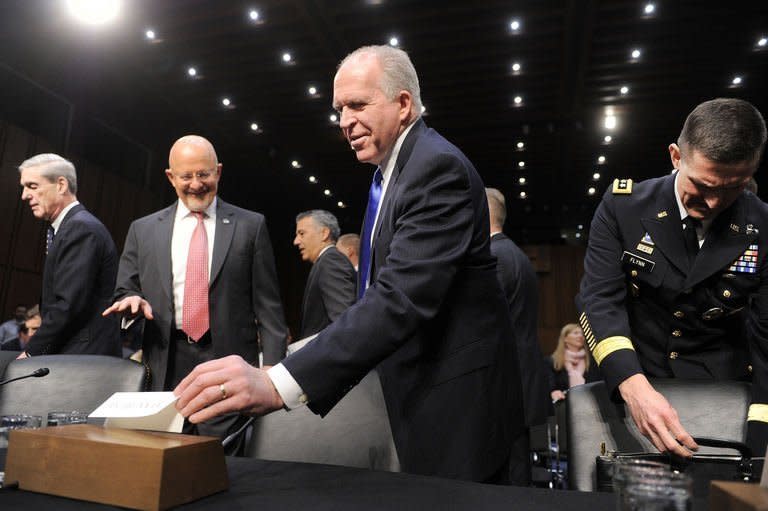US spy chief warns of cyber danger, N.Korea threat
Spy chief James Clapper warned Tuesday that the United States faces an array of new security threats around the world, from crippling cyber attacks to a "belligerent" nuclear-armed North Korea. In an annual assessment prepared for lawmakers, the intelligence director portrayed Al-Qaeda as a fading danger and suggested there was still time to persuade Iran's leaders not to pursue nuclear weapons. But he admitted that North Korea's strategic thinking remained a mystery, amid new tensions on the Korean peninsula, and said more than a decade after the September 11 attacks America faces a myriad of new potential dangers. Reflecting this shift in priorities, the report focused on new threats fueled by digital technology, turmoil in Arab states and climate change. Clapper, speaking to the Senate Intelligence Committee, cited a mounting risk from digital assaults on power grids and other infrastructure while cyber espionage threatens to undercut the American military's technological edge. He said "unsophisticated" attacks could penetrate poorly protected computer networks for power grids or similar systems and pose an "increasing risk to US critical infrastructure." The threat of a digital assault that could cripple a regional power network was genuine but remained a "remote" possibility, his report said. Unlike previous reports, the assessment ranked cyber attacks first on a list of transnational threats, devoting more words to digital hacking and cyber spying than to Islamist extremists in Afghanistan. As for the war in Afghanistan, after more than a decade of combat and more than 2,000 Americans dead, the report could only point to mixed results. In contrast to upbeat assessments from top US officials and commanders, the report said the Taliban was "diminished" but resilient and battlefield gains remained "fragile." With tensions spiking on the Korean peninsula, Clapper also told senators he was dismayed by "very belligerent" statements coming from Kim Jong-Un's regime. "The rhetoric, while it is propaganda-laced, is also an indicator of their attitude and perhaps their intent," said Clapper, who oversaw military intelligence in South Korea in the 1980s. "So for my part I am very concerned about what they might do." North Korea would likely only use nuclear weapons if it perceived a threat to its survival, but the United States remains uncertain how Pyongyang would define such a threat, the report said. "Although we assess with low confidence that the North would only attempt to use nuclear weapons against US forces or allies to preserve the Kim regime, we do not know what would constitute, from the North's perspective, crossing that threshold," the assessment said. In the latest in a week-long series of provocations in the wake of new UN sanctions over the North's weapon programs, Kim threatened to "wipe out" a South Korean island. The report also addressed the state of Iran's nuclear program, saying Tehran could not produce enough highly-enriched uranium for an atomic bomb without this being detected. While Iran has made strides in its nuclear program, "we assess Iran could not divert safeguarded material and produce a weapon-worth of WGU (weapons-grade uranium) before this activity is discovered," the report said. Clapper reiterated an analysis issued by intelligence agencies last year that Iran had not yet opted to build nuclear weapons and that the regime's policy was based on a "cost-benefit" approach. But because Iranian leaders put a high priority on preserving their power and would carefully weigh the risks of obtaining nuclear weapons, the United States has an opportunity to exert influence over Tehran's ultimate decision.




